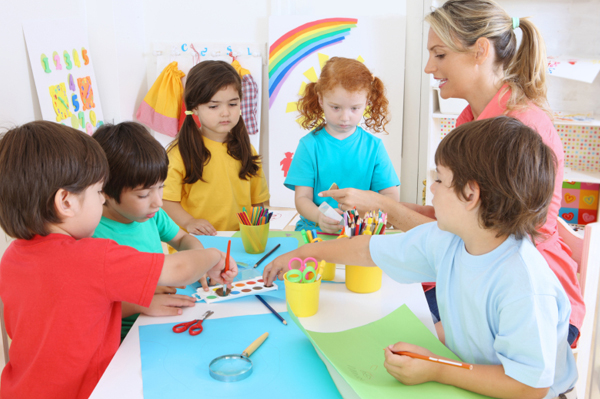Daycare Certifications: A Comprehensive Guide
You embark on a rewarding, exciting journey when you dream about running your daycare. It would help if you had a few essential certifications before opening your daycare doors to children. These will help ensure their safety, well-being, and the success of your business. In this comprehensive guide, we’ll explore the necessary certifications and qualifications you must acquire to answer the question, what certifications do I need to open a daycare?
Early Childhood Education certifications:
Early Childhood Education is one of the most important certifications when opening a daycare. This certification proves you received formal education in child development theories, teaching techniques, and educational theories. This course equips you with all the necessary knowledge and skills for creating a stimulating and age-appropriate learning environment in the care of children.
First aid and CPR certification:
Care for young children requires a high level of safety. The requirement of obtaining a First Aid/CPR Certification is non-negotiable. This certification guarantees that you can provide immediate medical assistance in an emergency.
Childcare Licensing:
Licensing laws vary from jurisdiction to jurisdiction, but most require that Daycares have a license to operate legally. In general, licensing involves meeting specific health, security, and personnel standards. Inspections ensure that you meet all of the requirements.
Child Abuse & Neglect Prevention Training:
A thorough knowledge of child neglect and abuse prevention is necessary to work with children. Daycare providers in many states and provinces must complete training that teaches them how to identify signs of child abuse and neglect. This training promotes a healthy environment for children while protecting the staff and children.
Also Read: How to serve customers in a hotel to build loyalty
Food Handling & Nutrition Certification:
If your daycare serves meals or snacks to the kids, you must obtain a nutrition and food handling certification. This certificate ensures that your daycare follows proper food safety procedures, plans balanced and nutritious menus, and caters to children with dietary allergies or restrictions.
Fire Safety and Emergency Preparedness training:
Fire safety and emergency preparation training are essential for you to do your part to keep children safe. This training covers evacuation procedures, fire prevention, and handling different emergencies, like lockdown situations, natural disasters, or lockdown situations.
Background Checks, Fingerprinting, and Criminal History:
The kids’ safety in your care is often why daycare providers, staff, and other employees must undergo a background check and fingerprinting. These checks seek to identify any criminal past that could pose a potential risk to the child’s well-being.
Specialized Certifications and Training:
You must get additional training and certifications if your daycare focuses on children with special needs. If, for example, your daycare caters primarily to children with special educational needs, then obtaining certifications in inclusion and special education would be beneficial. Additionally, if the program you plan to implement is Reggio Emilia/Montessori, then certifications will prove useful.
Business licenses and permits:
You must have the proper business permits and licenses to operate legally. These can include general licenses for business, zoning, and tax registrations.
The Continuing Education and Development of Professionals:
As the childcare industry changes, daycare providers must stay informed about new trends and best practices. Consider participating in professional workshops and continuing education courses to increase your knowledge.
Conclusion:
Opening a child care center is a rewarding endeavor that requires preparation. From Early Childhood Education certificates to First Aid or CPR training and childcare licenses to background checks, each certification is essential to ensuring your daycare’s safety and success.
You should always research the local requirements and ensure that you comply. You’ll be better prepared to offer your children a nurturing and stimulating environment if you obtain the certifications or qualifications.



